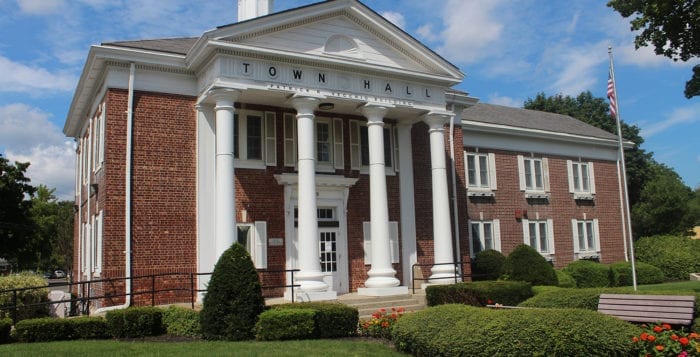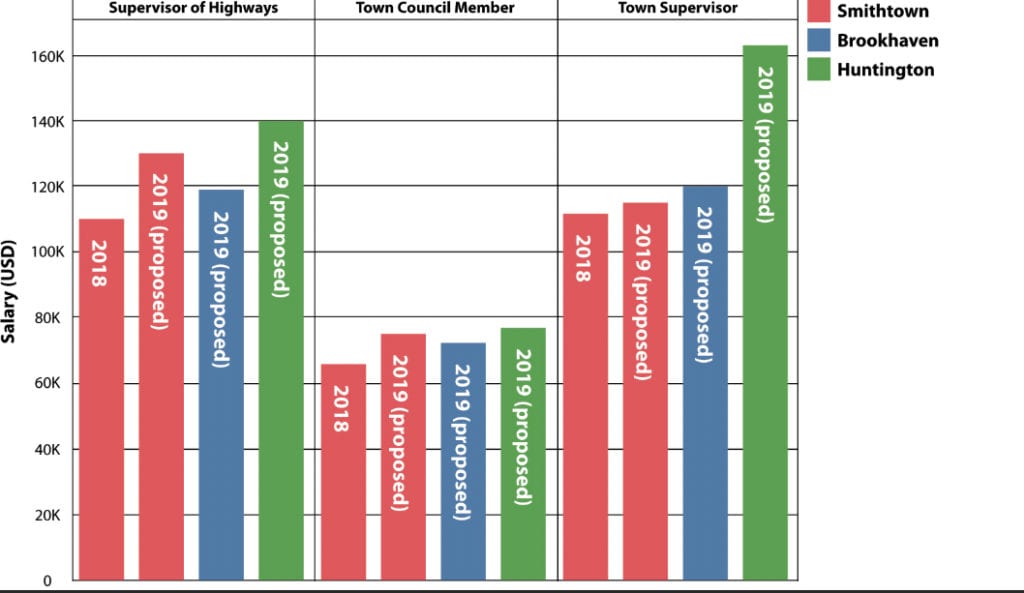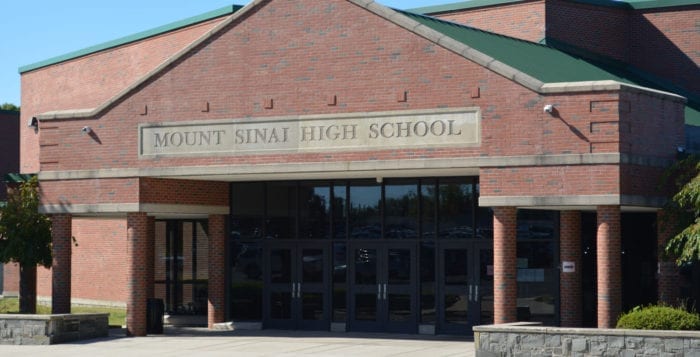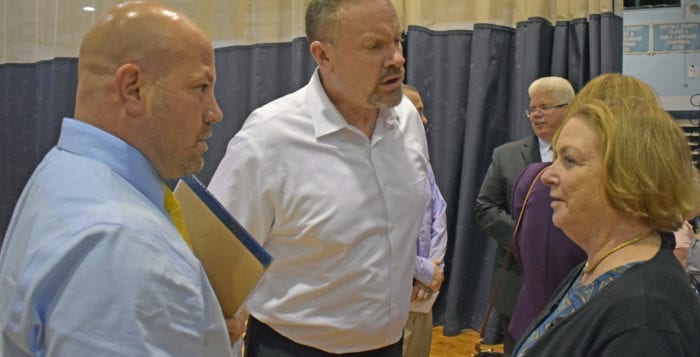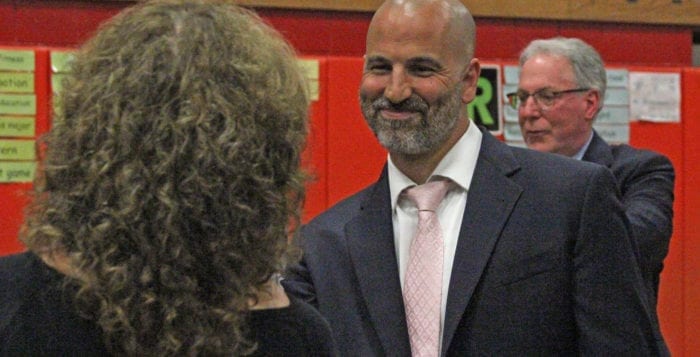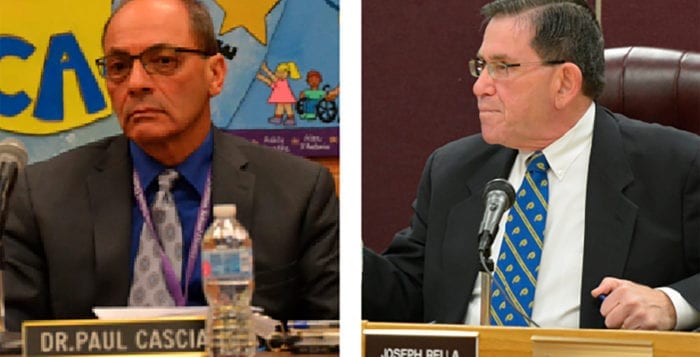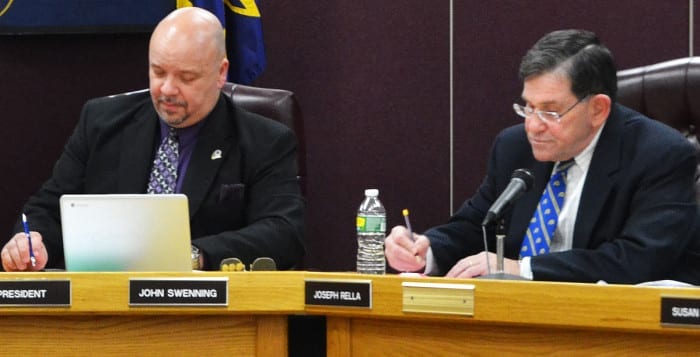The St. James General Store is one of the longest continuously operating stores in the country, selling homemade goods and treats to visitors since 1857. Now, there is uncertainty and fear that its future is in danger.
Suffolk County, which operates the shop as a historic site under the Parks Department, has reduced its funding of the landmark by nearly 80 percent under the county’s adopted 2019 operating budget. St. James residents and supporters of the general store are concerned about its ability to keep its shelves stocked and continue operations.
“It’s a landmark that was the original post office of St. James. It’s such a huge part of our town that people come from all over to come to this place.”
— Kerry Maher-Weisse
“This is something that is near and dear to all of our hearts,” said Kerry Maher-Weisse, president of the Community Association of Greater St. James. “It’s a landmark that was the original post office of St. James. It’s such a huge part of our town that people come from all over to come to this place.”
Suffolk Executive Steve Bellone (D) only set aside $29,129 for the general store to purchase items for resale, down from a 2018 budget of $125,000. These funds are expected to stock the shelves of both the store and the Big Duck gift shop in Flanders, which is overseen by the same county staff.
“In 2018, the county had extra money left over from prior years and was able to appropriate additional funds to parks [including the stores],” Eric Naughton, the county’s budget director, said.
Despite the slashing of the stores budget, Suffolk’s lawmakers generally agree the St. James and Big Duck shops are moneymakers for the county. The stores turned over a profit of approximately $400,000 in 2018, which was returned to Suffolk’s general fund.
“As it does make money, it is in our best interest to increase its funding,” Naughton said.
“As it does make money, it is in our best interest to increase its funding.”
— Eric Naughton
St. James resident Scott Posner, president of neighboring Deepwells Farm Historical Society, is familiar firsthand with the county’s fiscal issues. Roughly 14 years ago, the county walked away from running Deepwells for “budgetary reasons,” and he was part of a group there to continue to ensure the site’s operations. Posner said he’s ready to advocate for the general store.
“What we’re doing right now is making sure the county corrects its funding,” he said. “What we really need to do is lean on the county.”
Funding for the St. James General Store is taken from the proceeds of Suffolk’s hotel/motel tax, according to Naughton, which places a 3 percent occupancy tax on individuals renting rooms or lodging within the county. The budget director said once the tax is collected from businesses for last year and he’s able to reconcile the 2018 proceeds, there should be additional funding available to allocate to St. James General Store, Big Duck gift shop and the parks.
“I think we will be able to return it to the same level of funding,” Naughton said.
“It is a living part of the past. It would be a shame to see it defunded.”
— Bev Tyler
Any additional funding recommended by the Suffolk executive’s office would need to go before the county Legislature for a vote and its approval before being appropriated. In the meanwhile, the county and the general store’s supporters agree the store’s limited budget will be enough to get it through the spring.
“The St. James General Store is one of the treasures of Suffolk County,” Bev Tyler, Three Village Historical Society historian said. “It is a living part of the past. It would be a shame to see it defunded.”
County Legislator Rob Trotta (R-Fort Salonga), whose district covers St. James, said he will advocate for the store: “The oldest store in the country has survived the hurricanes, suburban sprawl, the Civil War and the Great Depression,” but not the county’s mismanagement.
Editor’s Note: The last name of Bev Tyler, Three Village Historical Society historian, was changed to its proper spelling.


